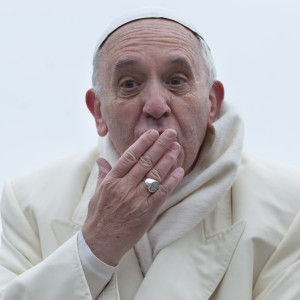While waiting to meet with a client on death row recently, I was chatting with a corrections officer who had been working at this state’s notorious maximum security prison for more than two decades. He told me that he preferred working on death row over the prison’s general population. The death row prisoners, he said, are the easiest ones to manage. They’re rarely serial criminals. They’re not the prison’s troublemakers. For the most part, he said, death row is made up of people who made one horrible, tragic mistake.
While it isn’t always that simple, this officer sees that the prisoners he interacts with are people — damaged people, but people who can be punished safely and effectively without the government taking their lives. Pope Francis recognized this earlier this month when he announced that the Catholic Church would no longer defend the death penalty in any circumstances, and the church would work “with determination” to end the practice.
As Pope Francis acknowledged, at its core the death penalty is an affront to human dignity. Our criminal justice system should instead value rehabilitation and redemption. We should not as a society turn our backs on the least among us. I’ve seen the power of redemption with my clients who have accepted life sentences to avoid a death sentence. One client obtained a janitorial certification in prison, describing it as his life’s proudest accomplishment. Another, inspired by his Christian faith, creates beautiful works of art and shares them with ministers who visit the prison, to share with their congregants.
Pope Francis’s rejection of the death penalty does not absolve people who commit homicide of punishment altogether. He acknowledges rather that there are suitable, safe alternatives to the government taking another life to address the harm to society.
The death penalty in the United States offends human dignity because it cannot be divorced from our country’s legacy of lynching and racial terror. People of color are still disproportionately sentenced to death, especially when the victim is white. And black defendants are still sentenced to death by all-white juries.
The death penalty also offends human dignity because it does not deter. States without the death penalty have lower homicide rates than those that retain it. It should come as no surprise that the cycle of violence — both individual and institutional — perpetuates more violence.
The death penalty also offends human dignity because it has proven an unreliable and failed experiment, where scores of innocent people have been sent to death row for crimes they did not commit — now up to 162, and counting.
Pope Francis did not emerge with this view from a liberal enclave. There is growing conservative opposition to the death penalty in the United States. And of course, the Catholic Church has long taught that the death penalty should be reserved for the rarest of cases, when no other punishment was practicable.
I came to oppose capital punishment from my own Catholic upbringing. As a child, I toured my local parish jail with Sister Margaret McCaffrey, “North Louisiana’s Mother Theresa,” as Sister Helen Prejean once described her to me. I saw what so many people never have a chance to see: that the people locked up were — people.
They were brothers, sons, fathers, cousins, neighbors. They were broken, frail people who had made mistakes, sometimes very serious ones. But they were people who were capable of redemption. People who, the church taught us, as the least among us, should be shown love, compassion and dignity.
Pope Francis’ announcement aligns with the sentiments of a growing number of people in the United States. Prosecutors and jurors across the country continue to reject the death penalty in favor of life sentences, with death sentencing at an all-time low. Several states have abolished the death penalty in recent years, and politicians on both sides of the aisle continue to introduce new legislation to curb or end its use.
Still, the United States stands alone among Western democracies in its retention and heavy use of the death penalty. Catholics, and all people in the United States, should reflect on this failed government institution, and like Pope Francis teaches us, reject it in all circumstances.

